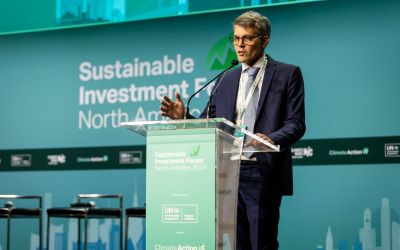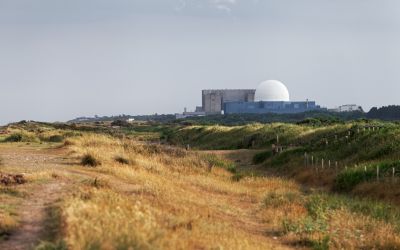Ørsted announces biodiversity impact measurement framework
Ørsted has announced the development of an impact measurement framework for meaningfully and consistently measuring and reporting biodiversity impacts across projects and markets.

Ørsted has announced the development of an impact measurement framework for meaningfully and consistently measuring and reporting biodiversity impacts across projects and markets, founded in established scientific methodologies but applied by industry to renewable energy assets on- and offshore for the first time.
The framework builds on the robust environmental measurement and monitoring the organisation already do across the world to sustainably develop renewable energy projects. It will allow Ørsted to measure, track, and report delivery of a net-positive 2030 ambition for our projects across the globe.
In addition, the new framework will build on the global programme of pilot projects Ørsted have already launched. These projects demonstrate the huge range of ideas we’re going to need to explore as offshore wind accelerates globally into new ecosystems and communities. Ørsted say these projects demonstrate the huge range of ideas its going to need to explore as offshore wind accelerates globally into new ecosystems and communities, including:
- restoring biodiversity around the UK’s Humber Estuary, planting seagrass, restoring saltmarsh and creating a biogenic reef using native oysters through our Wilder Humber project.
- testing the potential of marine rewilding to restore biodiversity in the Netherlands with our partners ARK Nature.
- 3D-printed reefs to contribute to a healthier, more resilient marine ecosystem and support the recovery of cod populations in the Kattegat, a sea area between Denmark and Sweden.
- testing out innovative ways to support warm water coral reefs, which are under severe pressure not least because of climate change, by growing corals on our wind turbine foundations with our ReCoral project in Taiwan.
Benj Sykes said: "Measuring our impact on biodiversity allows us to understand whether we’re achieving what we set out to do, and to hold ourselves accountable for our biodiversity impact over the lifetime of an asset. It is also key to securing additional financing to scale up this work, for example through blue bond issuances tied to net-positive impact projects."
Developed in collaboration with The Biodiversity Consultancy, the approach aligns with emerging nature-related impact metrics and reporting frameworks from coalitions like the Science Based Targets for Nature, the Taskforce on Nature-related Financial Disclosure, World Economic Forum, and the Global Initiative for Nature, Grids, and Renewables.
Ørsted say the aim is that the framework will inform an industry consensus on measuring biodiversity impacts, so that together we can achieve a global energy transition with positive outcomes for nature locally, regionally, and globally.
Find out more here.






